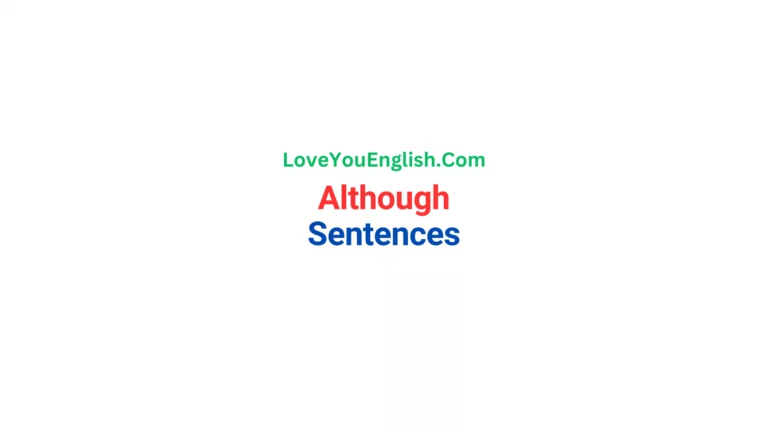Advanced Adjectives for Describing People
Advanced Adjectives for Describing People is a helpful guide for learners who want to improve their English vocabulary and sound more fluent and expressive. Instead of using basic words like good, bad, or nice, this topic introduces stronger and more precise adjectives such as charismatic, resilient, empathetic, and ambitious. These words help students describe personality, behavior, emotions, and character more clearly in both speaking and writing. This article is especially useful for English learners, ESL students, exam preparation, interviews, and advanced writing tasks. Written in clear and simple English, it helps learners build confidence, enrich their vocabulary, and communicate ideas more effectively.
Adjectives for Describing Personality
1. Amiable
- Meaning: Friendly and pleasant.
- Example: “He is an amiable person who gets along with everyone.”
2. Astute
- Meaning: Having sharp judgment and understanding.
- Example: “She made an astute observation about the team’s performance.”
3. Benevolent
- Meaning: Kind and well-meaning.
- Example: “The benevolent leader donated to several charities.”
4. Charismatic
- Meaning: Charming and able to inspire others.
- Example: “Her charismatic personality makes her the center of attention.”
5. Gregarious
- Meaning: Sociable and enjoying the company of others.
- Example: “He’s gregarious and loves hosting parties.”
6. Impulsive
- Meaning: Acting without thinking.
- Example: “His impulsive nature often gets him into trouble.”
7. Meticulous
- Meaning: Paying great attention to detail.
- Example: “A meticulous worker always double-checks their tasks.”
8. Resilient
- Meaning: Able to recover quickly from challenges.
- Example: “She’s resilient and never gives up, no matter how tough things get.”
9. Stoic
- Meaning: Showing little emotion, especially during hard times.
- Example: “He remained stoic despite the bad news.”
10. Tenacious
- Meaning: Determined and persistent.
- Example: “Her tenacious attitude helped her succeed in her career.”
Adjectives for Describing Appearance
1. Alluring
- Meaning: Attractive or charming.
- Example: “She has an alluring smile that lights up the room.”
2. Angular
- Meaning: Having sharp features or edges.
- Example: “His angular face gives him a unique look.”
3. Lanky
- Meaning: Tall and thin in an awkward way.
- Example: “The lanky teenager is growing into his frame.”
4. Radiant
- Meaning: Glowing with happiness or health.
- Example: “Her radiant complexion made her look even more beautiful.”
5. Rugged
- Meaning: Having a rough, strong appearance.
- Example: “He has a rugged charm that many admire.”
6. Statuesque
- Meaning: Tall, graceful, and elegant.
- Example: “The statuesque model walked confidently down the runway.”
7. Svelte
- Meaning: Slim and graceful.
- Example: “She wore a svelte dress that emphasized her figure.”
8. Unkempt
- Meaning: Untidy or messy.
- Example: “His unkempt hair showed he’d had a rough morning.”
9. Vivacious
- Meaning: Full of life and energy.
- Example: “Her vivacious personality is reflected in her bright, lively eyes.”
10. Weathered
- Meaning: Showing signs of age or exposure to the elements.
- Example: “His weathered face told a story of years spent working outdoors.”
Adjectives for Describing Behavior
1. Altruistic
- Meaning: Putting others’ needs before one’s own.
- Example: “Her altruistic actions earned her respect from the community.”
2. Cynical
- Meaning: Distrusting others’ motives.
- Example: “He’s cynical about politicians and their promises.”
3. Eccentric
- Meaning: Unusual or quirky in behavior.
- Example: “Her eccentric habits make her stand out in the crowd.”
4. Frivolous
- Meaning: Lacking seriousness or importance.
- Example: “He spends his money on frivolous things he doesn’t need.”
5. Industrious
- Meaning: Hardworking and diligent.
- Example: “An industrious student always finishes their assignments on time.”
6. Manipulative
- Meaning: Controlling others for personal gain.
- Example: “Her manipulative tactics made people lose trust in her.”
7. Nonchalant
- Meaning: Calm and unconcerned.
- Example: “He remained nonchalant even in stressful situations.”
8. Obnoxious
- Meaning: Annoying or offensive.
- Example: “His obnoxious behavior made it hard for others to enjoy the party.”
9. Pensive
- Meaning: Deep in thought.
- Example: “She had a pensive look as she pondered her next move.”
10. Vindictive
- Meaning: Seeking revenge.
- Example: “His vindictive nature led to conflicts with his coworkers.”
Adjectives for Describing Intelligence and Skills
1. Articulate
- Meaning: Able to express thoughts clearly and effectively.
- Example: “He is an articulate speaker who captivates his audience.”
2. Creative
- Meaning: Full of original ideas.
- Example: “Her creative approach to problem-solving impressed her boss.”
3. Ingenious
- Meaning: Clever and resourceful.
- Example: “He came up with an ingenious solution to the issue.”
4. Intuitive
- Meaning: Understanding things naturally without much explanation.
- Example: “She has an intuitive grasp of what her clients need.”
5. Perceptive
- Meaning: Able to notice and understand things quickly.
- Example: “His perceptive comments during the meeting were highly valuable.”
6. Pragmatic
- Meaning: Dealing with things in a practical way.
- Example: “Her pragmatic mindset helped the team achieve their goals.”
7. Proficient
- Meaning: Skilled or experienced in a particular area.
- Example: “He is proficient in multiple languages.”
8. Rational
- Meaning: Based on logic and reason.
- Example: “A rational person doesn’t let emotions cloud their judgment.”
9. Versatile
- Meaning: Able to do many things well.
- Example: “She is a versatile employee who excels in various roles.”
10. Visionary
- Meaning: Having original ideas about the future.
- Example: “The visionary leader transformed the company.”
Adjectives for Describing Emotions
1. Apathetic
- Meaning: Showing little interest or emotion.
- Example: “He felt apathetic about the outcome of the game.”
2. Belligerent
- Meaning: Aggressive and ready to fight.
- Example: “His belligerent attitude often caused arguments.”
3. Compassionate
- Meaning: Feeling or showing sympathy for others.
- Example: “Her compassionate nature makes her a great nurse.”
4. Jubilant
- Meaning: Extremely happy or joyful.
- Example: “The team was jubilant after their victory.”
5. Melancholy
- Meaning: Feeling sad or gloomy.
- Example: “He had a melancholy look as he reflected on the past.”
6. Overwhelmed
- Meaning: Feeling stressed or unable to cope.
- Example: “She was overwhelmed by the amount of work on her desk.”
7. Serene
- Meaning: Calm and peaceful.
- Example: “The serene expression on her face was soothing to see.”
8. Suspicious
- Meaning: Doubtful or distrustful.
- Example: “He gave her a suspicious look when she hesitated to answer.”
9. Vulnerable
- Meaning: Open to emotional or physical harm.
- Example: “He felt vulnerable sharing his deepest fears.”
10. Zealous
- Meaning: Passionately enthusiastic.
- Example: “She is zealous about protecting the environment.”
How to Use These Adjectives Effectively
- Context Matters: Choose adjectives that match the situation. For example, use “resilient” to describe someone’s ability to bounce back after failure.
- Combine Words: Pair adjectives with descriptive nouns to create stronger images. For instance, “a meticulous artist” sounds more vivid than “an artist.”
- Practice Regularly: Include these adjectives in your daily conversations and writing to make them part of your active vocabulary.
- Learn Synonyms: Understanding similar words helps you use the best one for the situation. For example, “gregarious” and “sociable” are similar but not always interchangeable.
This topic is part of our English Vocabulary for English learners.
By using these advanced adjectives, you can make your descriptions of people more dynamic and engaging.
Start practicing today, and soon you’ll find it easier to express yourself with precision and creativity!
You may also like these English learning articles:
- English Dialogues About House Renovation
- English Dialogues About Reality Shows
- English Dialogues About the Evolution of Music Genres
- English Dialogues About Small Business Ideas
- English Dialogues About Job Promotion






